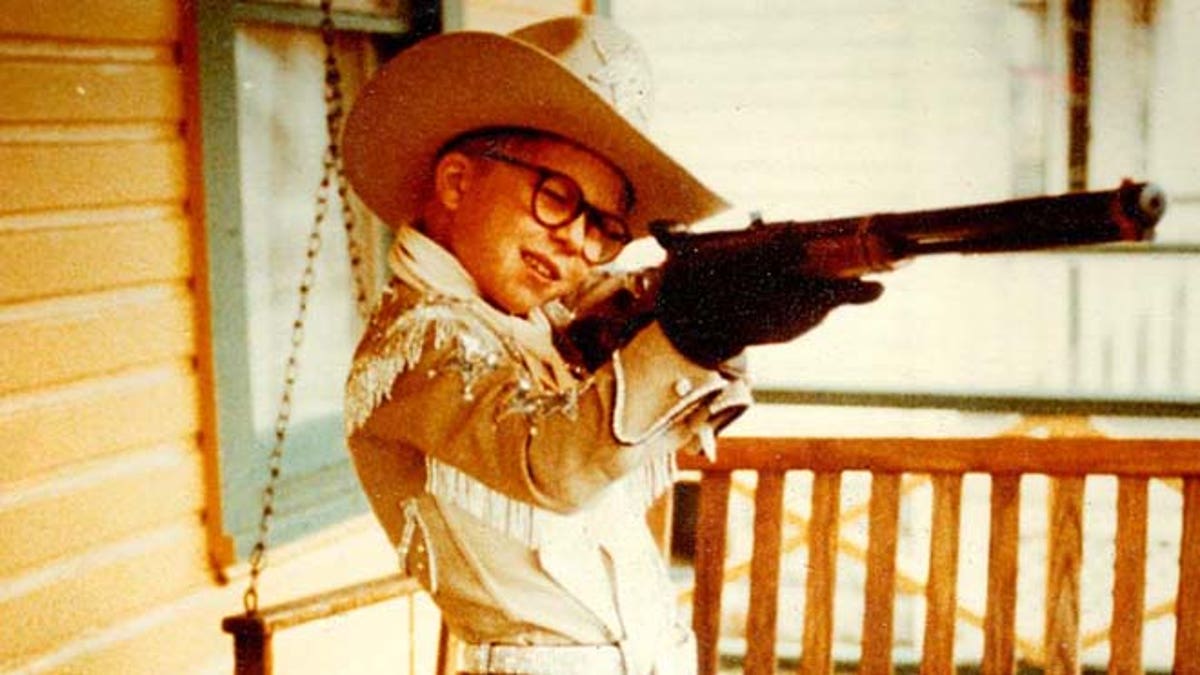
The Red Ryder BB gun was made famous in the 1983 film "A Christmas Story." (Courtesy of Daisy Outdoor Products/Daisy Museum)
Perhaps if Ralphie had been told his Red Ryder BB gun was legally considered a “firearm” in some states, he wouldn’t have had to be told “you’ll shoot your eye out.”
It turns out the spring air action pellet gun so sought after in the holiday classic “A Christmas Story” is considered far more than a toy in the eyes of the law. Case in point: Minnesota, where the Court of Appeals ruled on Monday to uphold the conviction of David Lee Haywood for possession of a “firearm” – in this case a Walther CP99 Compact .177-caliber BB gun.
Haywood wasn’t allowed to own a handgun after a 2005 felony drug conviction, so he was sent back to prison after cops found the BB gun in his glove compartment during a 2013 traffic stop. Haywood argued that a BB gun wasn’t a firearm. The Minnesota statute uses the word “firearm” but never defines it, so Haywood said the accepted definition of “firearm” should apply: a weapon that features a projectile fired by gunpowder. That’s far different from the operation of a BB gun, which uses no gunpowder to expel its shell.
“Treating airguns as firearms would make teaching firearm safety to children much more difficult.”
But Haywood, 37, was sentenced to a mandatory minimum of five years because the appellate court instead used language established in 1977, when the state Supreme Court defined a BB gun as a firearm using wording plucked from the state game and fish laws. Because the state legislature has enacted other laws in the statute since that ruling 38 years ago without adding a new definition, the court’s 1977 explanation has stuck. It can only be changed if the legislature decides to adopt new language or if the state Supreme Court changes the definition.
“Generally, airguns are not defined as firearms under state or federal law because of the numerous negative effects such a definition would create,” NRA spokeswoman Jennifer Baker said in a statement to FoxNews.com. “In the case of state law, many states use multiple definitions of firearm, some of which may include airguns. For example, airguns will almost always be excluded from definitions governing possession, transfer and use, but may be included for criminal misuse.”
State definitions vary, with New Jersey and Rhode Island using some of the strictest language, according to the Law Center to Prevent Gun Violence. Those states classify all non-powder guns as firearms. Illinois and Michigan treat certain non-powder guns as firearms while Connecticut, Delaware and North Dakota list them as “dangerous weapons.” Thirteen states impose age restrictions on the possession, use and transfer of non-powder guns.
“Treating airguns as firearms would make teaching firearm safety to children much more difficult,” Baker said, listing a litany of potential issues with designating BB guns as firearms.
Grant Gibeau, who represented Haywood, told FoxNews.com that even though the definition of a “firearm” may be arbitrary when examined state by state, it’s anything but subjective when applied as a standard within the state. For instance, the court didn’t take Haywood’s intentions into account, nor did they care that the BB gun closely resembled a standard firearm.
“It’s not a matter of the court looking at the client,” said Gibeau, who’s appealing Haywood’s case to the Minnesota Supreme Court. “It’s pretty much: ‘Do you fit into this category? And if you do, the court has to do the minimum.’”

